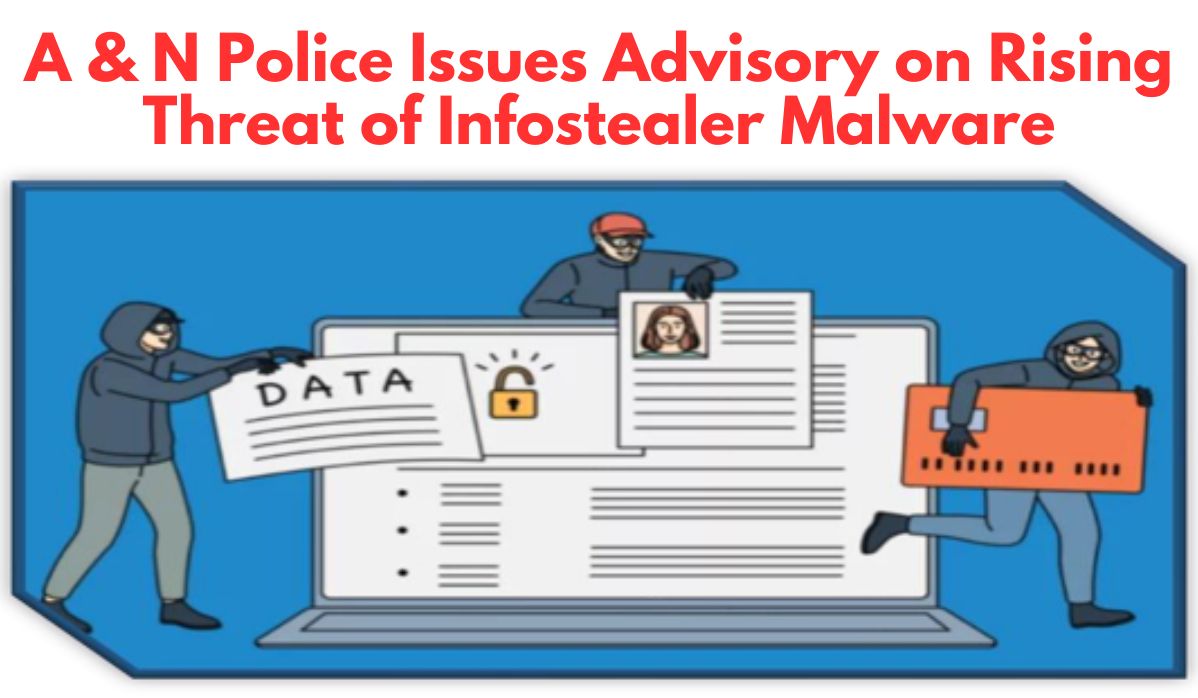Tarun Karthick
Port Blair, 14 October 2023
In recent months, a significant surge in cybercrimes involving infostealer malware has caught the attention of law enforcement agencies. Infostealers, also known as information stealers, these are malicious programs designed to covertly extract sensitive information from compromised systems. This includes data such as passwords, browser autofill details, cookies, cryptocurrency wallet information, and credit card details, which are then transmitted to the attackers’ systems.
The rise in infostealer attacks is attributed to cybercriminals distributing these malicious programs, often masquerading as cracks and key generators for various unofficially downloaded software. These illicit tools are frequently used as vectors for spreading malware, forming a significant threat landscape in the world of cybercrime.
Infostealers typically operate within a malware-as-a-service (MaaS) business model. In this model, the creators of malicious software lease their malware to other criminals for a fee, enabling a broader range of threat actors to carry out these attacks. Cybercriminals bundle infostealers with key generators and software cracks and make them available on dubious sources like freeware download websites, free file hosting websites, peer-to-peer (P2P) networks, and other unverified platforms. Unsuspecting victims often download these malware-laden files, believing they are legitimate ways to activate licenses for third-party software.
Once the infostealer malware is executed on victims’ systems, it covertly collects sensitive data stored on these systems, subsequently sending the information to a Command and Control (C2) server controlled by the attackers. The primary motivation behind infostealer attacks is typically financial gain. The stolen data is systematically analyzed and organized into databases, which can then be sold on the dark web or through private social media channels.
The stolen information can be used for various fraudulent activities, such as applying for bank loans or credit cards, making online purchases, or filing fraudulent health insurance claims, among other illicit actions.
To combat this growing threat, the Andaman and Nicobar Police have issued an advisory to help individuals protect themselves against infostealers. Here are some key recommendations:
1. Avoid downloading pirated software and using third-party key generators. Such software is often bundled with malware.
2. Be cautious of sources promising free installation of premium software features. These are frequently used to distribute infostealers.
3. Download software only from official sources. Verify the legitimacy of websites before downloading any software.
4. Ensure your devices are secured by using reputable antivirus and anti-malware solutions.
5. Regularly update your browser, operating system, and other applications to patch potential vulnerabilities.
If you encounter any cybercrime incidents, report them on the cybercrime.gov.in portal and follow @CyberDost on various social media platforms for safety tips.
For further assistance, information, or inquiries related to cybersecurity, please contact the Cyber Cell in Port Blair at the Cyber Helpline No. 1930 or 9531856083, or visit cybercrime.gov.in. Stay vigilant and protect your digital life from the growing threat of infostealers.

